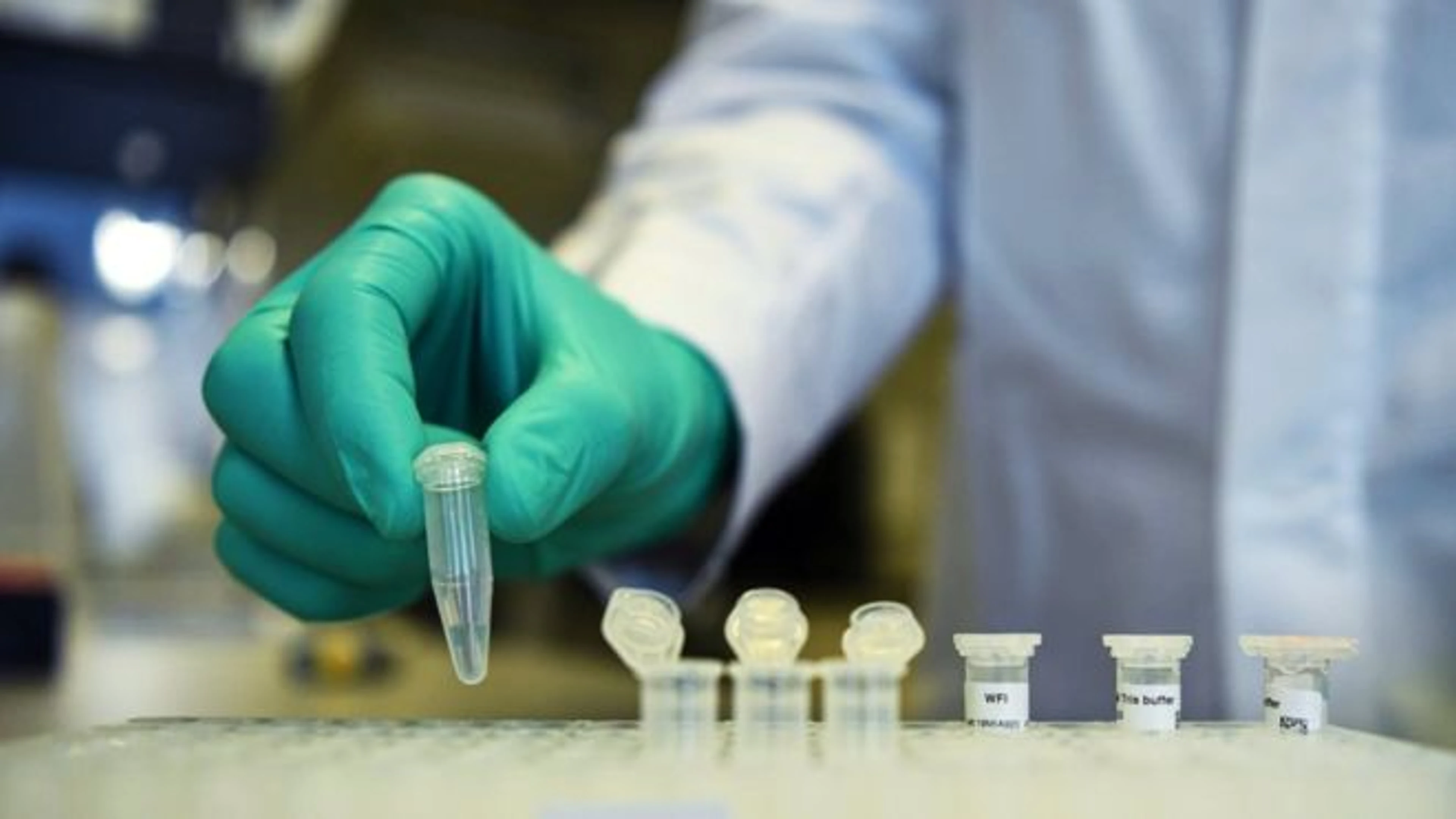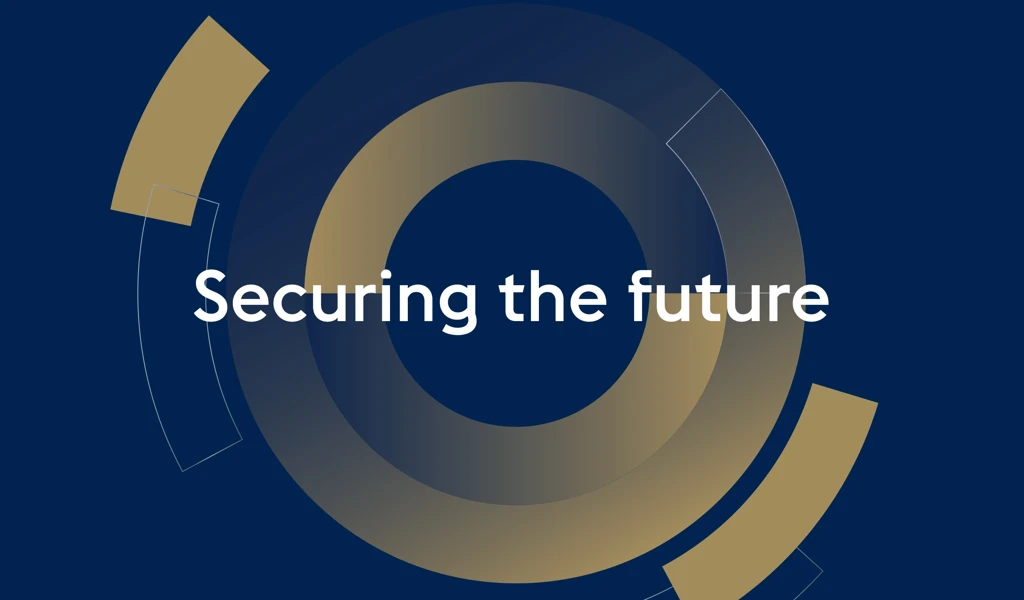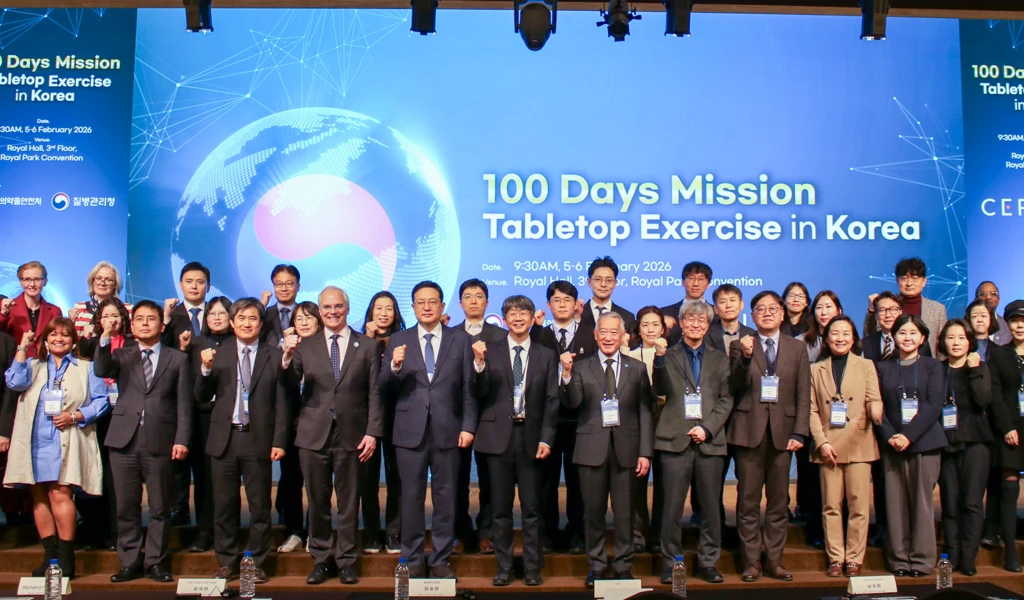Laboratory network to test vaccines against epidemic and pandemic diseases expands presence in Global South

CEPI-funded network aims to more rapidly and accurately identify the most promising vaccine candidates against emerging infectious diseases — including Disease X.
World's largest network of vaccine testing laboratories is a key enabler of the 100 Days Mission.
Expanded network will support sustainable regional outbreak preparedness infrastructure.
OSLO, Norway, 30 May 2023 — The Coalition for Epidemic Preparedness Innovations (CEPI) has significantly expanded the scale and geographical footprint of its epidemic and pandemic vaccine testing laboratory network in the Global South. CEPI announced that an additional five members based in Africa and India have joined its Centralized Laboratory Network (CLN) which now has 15 partner facilities in 13 countries.
The CLN is the largest global group using the same methods and materials, like reagents—substances used to carry out a scientific test—to standardise and accelerate the evaluation of vaccines against epidemic and pandemic diseases. In the event of an outbreak of infectious disease, having an established global clinical laboratory network in place will facilitate faster data readouts by harmonizing analyses and reducing sample shipping times due to its worldwide footprint. Therefore, the CLN is a key enabler of CEPI's 100 Days Mission, which aims to reduce vaccine development timelines to just 100 days, by helping researchers and regulators to evaluate the most promising vaccine candidates quickly and accurately when faced with a future ‘Disease X' — a newly identified pathogen with epidemic or pandemic potential.
The five new members of the CLN are:
-Indian Council of Medical Research National Institute of Virology (ICMR NIV) (India)
-Institut Pasteur de Dakar (IPD) (Senegal)
-KAVI Institute of Clinical Research (KAVI ICR) & University of Nairobi Institute of Tropical and Infectious Diseases (UNITID) (Kenya)
-Synexa Life Sciences (South Africa)
-Uganda Virus Research Institute (UVRI) (Uganda)
Vaccine developers around the world who are working on epidemic or pandemic infectious diseases must have the same level of scientific research and resource available to them to best prepare for future outbreaks. CEPI's growing network of laboratories will help harmonize the assessment of vaccines against known diseases – like Lassa fever, Nipah and Rift Valley Fever – and prepare us to tackle a future Disease X at speed. Expanding the footprint of CEPI's Centralised Laboratory Network to include additional expert facilities in the Global South will help to reduce sample transfer and testing times, potentially accelerating the development of vaccines against emerging infectious diseases while supporting sustainable and resilient regional outbreak preparedness infrastructure.
As members of the CLN, each institution will be on standby to support the rapid development of novel vaccines against a future Disease X by developing assays, supporting technology transfer of these assays to other laboratories, and testing samples from clinical trials of potential vaccine candidates against such pathogens. In interepidemic periods, the facilities will provide the same services to support vaccine development against one or more of CEPI's priority diseases - Chikungunya, Lassa virus, MERS, Nipah, Rift Valley Fever, SARS-CoV-2. CEPI is currently supporting the development of multiple vaccines against these high-risk pathogens, identified on the World Health Organization R&D Blueprint as having epidemic potential or as a major public health risk.
Standardising the assessment of infectious disease vaccines
During the typical vaccine evaluation process, the immune response generated by each vaccine candidate under development is assessed using different tools and measurements at individual testing sites, allowing for variability in results. For example, there may be variation in the way in which different types of immune biomarkers, like antibodies and T-cells — which are crucial when evaluating the efficacy of a vaccine - are measured. Technical differences in how and where vaccine clinical trial samples are collected, transported, and stored can also occur, impacting the quality and usefulness of the data produced and making comparisons between measurements, and between vaccine candidates, difficult.
By following the same protocols and using the same biological reagents, laboratories within CEPI's network can instead ensure uniformity in the assessment of multiple different vaccine candidates, which can in turn accelerate the development of new vaccines.
The Centralised Laboratory Network
CEPI's Centralised Laboratory Network first opened to all COVID-19 vaccine developers—both CEPI-funded and non-CEPI-funded—free of charge (excluding sample shipping fees), in October 2020, for the analysis of COVID-19 vaccine clinical trial samples up to Phase III studies. In November 2021, CEPI issued a Call for Proposals to expand the network to also assess vaccines against other epidemic and pandemic threats.
To date, over 50 developers have now used the service, with more than 70,000 clinical trial samples submitted for testing. CEPI has, to date, provided up to US $25 million in funding to support the running of the network.
—ENDS—
Quotes from new members of the Centralized Laboratory Network
Dr. Nivedita Gupta, Senior Scientist & Head, Epidemiology & Communicable Diseases, Indian Council of Medical Research, Delhi, India
"India is one of the largest global producers of vaccines for childhood immunization programs. Engagement of the ICMR- National Institute of Virology with CEPI will help in establishing validated assays and standards for expedited testing of new vaccines as per internationally accepted norms. We look forward to a fruitful collaboration, which will be of significant value in fast-tracking clinical trials and regulatory approvals of new vaccines for India and the world."
Dr Amadou Alpha Sall, CEO, Institut Pasteur de Dakar:
"The use of multiple & innovative techniques as well as the establishment of world-class laboratories to test candidate vaccines is an essential step in the development and eventual launch of any new vaccine. Expanding this network to Africa for the first time is both welcome to promote equitable access to vaccines and necessary if the world is to be better prepared in addressing infectious disease threats. Institut Pasteur de Dakar is pleased to collaborate with CEPI and other network members around the world to strengthen centers of excellence in Africa for immunology and laboratory sciences."
Professor Omu Anzala, Team Leader, KAVI-ICR & UNITID:
"Infectious disease outbreaks are becoming more frequent for a variety of reasons. Not a day goes by without a notification of an outbreak in one part of the world or the other. My team and I at KAVI-ICR & UNITID are very encouraged at being part of this global network of laboratories aimed at accelerating the standardization of assays for evaluating vaccines against emerging and re-emerging pathogens. The participation of Global South will enhance technology transfer, significantly reduce sample shipment logistics and improve on the turnaround time. We therefore look forward to participating fully in the network. Today's pursuit of excellence will set KAVI-ICR and UNITID up for a brighter tomorrow."
Dr Justine Devine, Chief Innovation Officer, Synexa Life Sciences:
"Synexa is proud to join the CLN, bolstering CEPI's network in the Global South and aligning ourselves with the mission of epidemic preparedness and innovation. We are excited to contribute to this global effort to combat emerging infectious diseases and protect lives worldwide. Together, we can accelerate the development and equitable distribution of vaccines, ensuring that vulnerable populations have access to life-saving interventions. Joining the CLN allows us to harness the power of collaboration, innovation, standardization, and solidarity, as we work towards a healthier, safer future for all."
Professor Pontiano Kaleebu, Director of Uganda Virus Research Institute (UVRI), a Government of Uganda Research Institution under the Uganda National Health Research Organisation (UNHRO) and the Ministry of Health (MoH):
"Building on our existing equitable partnerships as UVRI, we are excited to be part of this network that we believe will strengthen our capacity to urgently respond to epidemics in the region and enhance our contribution to disease control, knowledge generation and building research capacity within and outside Uganda."
Notes to Editors
CEPI's Centralised Laboratory Network includes the following partners:
-International Centre for Diarrheal Disease Research (icddr,b) (Bangladesh)
-National Institute for Biological Standards and Control (UK)
-Nexelis (Canada)
-Q2 Solutions (China)
-Q2 Solutions (USA)
-Translational Health Science and Technology Institute (India)
-UK Health Security Agency (UK)
-Universidad Nacional Autónoma de México (Mexico)
-Viroclinics (Netherlands)
-Vismederi (Italy)
-Indian Council of Medical Research National Institute of Virology (ICMR NIV) (India)*
-Institut Pasteur de Dakar (IPD) (Senegal)*
-KAVI Institute of Clinical Research (KAVI ICR) & University of Nairobi Institute of Tropical and Infectious Diseases (UNITID) (Kenya)*
-Synexa Life Sciences (South Africa)*
-Uganda Virus Research Institute (UVRI) (Uganda)*
* Denotes new member
About CEPI
CEPI is an innovative partnership between public, private, philanthropic, and civil organizations, launched in 2017, to develop vaccines against future epidemics. Its mission is to accelerate the development of vaccines and other biologic countermeasures against epidemic and pandemic threats so they can be accessible to all people in need.
Prior to COVID-19, CEPI's work focused on developing vaccines against Ebola virus, Lassa virus, Middle East Respiratory Syndrome coronavirus, Nipah virus, Rift Valley Fever virus and Chikungunya virus — it has over 20 vaccine candidates against these pathogens in development. CEPI has also invested in new platform technologies for rapid vaccine development against unknown pathogens (Disease X).
CEPI has played a central role in the global response to COVID-19, supporting the development of the world's largest portfolio of vaccines against SARS-CoV-2 and its variants with a focus on speed, scale and access, as well as co-leading COVAX, the global initiative to deliver fair and equitable access to COVID-19 vaccines. CEPI is also the world's leading funder of R&D for broadly protective coronavirus vaccines which could protect against future variants of COVID-19 as well as other coronaviruses with epidemic and pandemic potential.
CEPI has embarked upon an ambitious US$3.5bn five-year plan — called CEPI 2.0 — to dramatically reduce or even eliminate the future risk of pandemics and epidemics. Central to the plan is CEPI's goal — supported by the G7 and G20 — to compress the time taken to develop safe, effective, globally accessible vaccines against new threats to just 100 days. Achieving this ‘100 Days Mission' would give the world a fighting chance of containing a future outbreak before it spreads to become a global pandemic. Read the plan at endpandemics.cepi.net/


.webp)